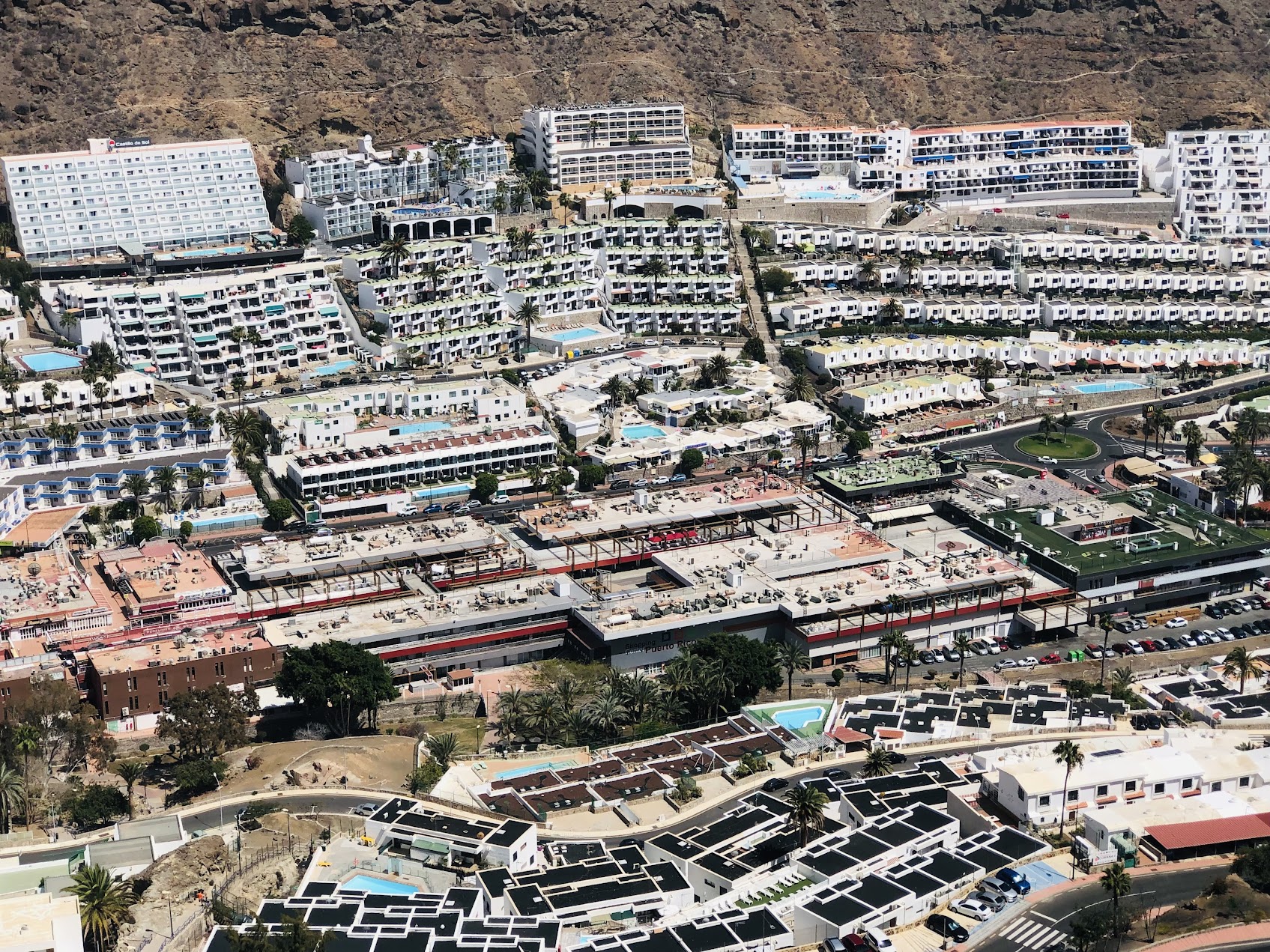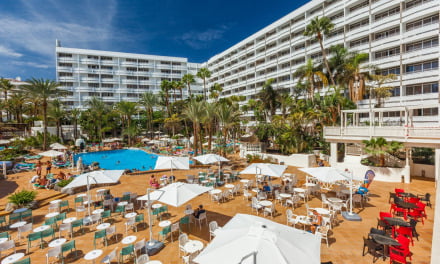While we still await final figures for the last quarter of 2022, the latest official data from The Canary Islands has shown foreigners are buying more homes in the Canary Islands than ever before. The number of real estate acquisitions by non-residents in the Canary Islands has risen 52% compared to the same period in 2021, and is already 16% higher than the highest ever record set in 2017.
The causes of this increase in demand are varied. Some attribute it to pent-up demand during the pandemic years, while others point to the potential for high profitability of real estate in the Canary Islands as an attractive opportunity for international buyers. Additionally, the ongoing conflict in Ukraine has led some investors from bordering countries to look for safer places to acquire new properties, and the sub-tropical Canary Islands are a popular destination, offering sunny weather all year round, while still being regulated as part of Spain and the EU.
However, the influx of foreign buyers to the Canary Islands has led to some problems. The high demand for homes has driven up prices, making it increasingly difficult for local residents to access affordable housing. Some political parties in the region, such as Nueva Canarias, have called for a “demographic challenge” commission to study the effects of home purchases by non-residents on the growing housing emergency in the region.
House prices are rising, rents have risen too, and there is a shortage of new affordable houses being built. It is a serious issue, particularly for a native population that, generally, works more hours for lower wages with which they often support larger families.
Unemployment in The Canary Islands sits at nearly 18% of the work force, youth unemployment at more than 43%, while almost 10% of all households have no members who are working.
Source: EPData
This has also revived the debate on whether the Canary Islands should follow the example of the Balearic Islands, and explore a possible limitation on foreign buyers. The Balearic Islands have recently taken steps to try to limit the purchase of homes by foreigners, but such a move would likely run afoul of European regulations, which protect the rights of community citizens.
Other regions have also recently imposed restrictions on foreign buyers. For example, Canada has introduced a limitation on the purchase of real estate by non-residents that will remain in force for at least two years in an effort to alleviate housing prices.
The real estate sector, and other experts, have spoken out against considering a similar move, arguing that it would be a major blow to economic activity and employment in the region. Isidro Martín, regional delegate for the Professional Association of Real Estate Experts (APEI), points out that these transactions move a large amount of money that translates into economic activity and employment, as well as taxes.
Realtors say it would be an utter nonsense to put sticks in the wheels of transactions that account for more than 30% of the total volume of sales that are registered in The Canaries. “What would it mean if one out of every three acquisitions disappeared at the stroke of a pen?” asks Isidro Martín. “It would mean eliminating work in notaries, agencies, the sector of reforms or the sale of furniture or decoration”, without taking into account that a third of the taxes paid for all real estate transactions would also be eliminated.
Martín also points out it would also negatively affect the arrival of many tourists who come to the Canary Islands to spend holidays in their own homes and who consume in bars and cafeterias, shop at the supermarket and in local businesses.
 More than half of all property purchases were foreign buyers, and more than half of those are non-resident
More than half of all property purchases were foreign buyers, and more than half of those are non-resident
According to real estate transaction data from the Ministry of Transport, Mobility and the Urban Agenda up to Q3, non-resident foreigners acquired 7,659 properties last year in the Canary Islands. A figure that if added to the transactions signed by foreigners who are residents represents a total of 13,111 operations. Therefore, more than half of the 24,533 home sales that took place in the Canary Islands until September of last year were to non-Spanish buyers. Among foreign buyers in the Archipelago as a whole, the British and Germans stand out, but also Italians and Poles over recent years. People who generally have a greater purchasing power than the average Canarian and who, Martín acknowledges, push prices upwards.
Third country British property owners campaign to change EU 180-day rule
In terms of British citizens, post-Brexit, many would-be British buyers are now considered non-resident and will have to pay extra taxes when purchasing property in the Canary Islands. Among those that already own property in Spain there are campaigners, such as “180 Days in Spain” who also argue that Brexit has been particularly unfair for those who already own property here, as there are strict limits on how much time they can spend in any Schengen country, and who want to see the 180-day rule made more flexible for those who own a home here but remain officially resident elsewhere.
Canary Islands holiday homes and short term rentals regulations
The law around holiday lets in The Canary Islands is still evolving, and contentious. There have been a number of protests and debates since 2015 with regard to the rules around licensed exploitation of tourism-designated apartment complexes, and people living full time in them, as well as those properties built on land originally zoned, or intended, as solely for tourism use. The Canary Islands Government has proposed a law that will force property owners to register their properties with a view to imposing taxes on short-term holiday rentals, which will likely impact profitability of apartments purchased for this purpose.
The law has not yet been fully implemented and is expected to face challenges from property owners and real estate companies who argue that this could damage the holiday rental market in the region, which is also a significant source of income for many local residents. Conversely, hoteliers and tourism industry associations claim that holiday home rentals damage their business and lead to falling standards in the types of accommodation offered to tourists, which in turn has a negative effect on the destination as a whole.
Many locals argue that the benefits of owning tourism accommodation should not be monopolised solely by big business working with hotels and tour operators, but that the market for private renters should be protected.
Despite the ongoing debates, the current numbers are clear, and the Canary Islands real estate market for foreign buyers remains strong. The demand for real estate in the region continues to grow, driven by a number of factors, including high profitability and the region’s appeal as a year-round sunshine, holiday destination. It will be increasingly important to address the potential negative consequences of this trend, such as impact on local residents’ ability to access affordable housing and for workers to find affordable rent. Many Canarians are concerned about being priced out of the places that they were born.
It remains to be seen how the Canary Islands Government will address these challenges and whether any limitations on foreign buyers will be imposed in the future. Regardless, it is important for foreign buyers to be aware of any potential risks, so that they can make informed decisions, and obstacles they may face when purchasing property in the Canary Islands, so that they can keep an eye on the laws regarding holiday lets and extra taxes they may be subject to. Getting the right property advisor is more important than ever, as growing numbers of people from abroad look to invest in, or move to, the best climate in the world.
Real Estate companies are, of course, pretty happy about the current figures, you can read more about it on Idealista
 Campaigners want holiday-home rentals to be debated in the Regional Parliament
Campaigners want holiday-home rentals to be debated in the Regional Parliament
The use of accommodation complexes in tourist areas of the Canary Islands has become a contentious issue among the more than 50,000 owners of apartments and bungalows on the islands. These owners are claiming that their livelihoods and property values are at risk if exclusive tourist use is imposed in municipalities where this type of property predominates. To address this issue, the Platform for those Affected by the Tourism Law has accelerated efforts to gather the necessary 15,000 signatures, before January 16, for a popular legislative initiative to be debated in parliament.
The platform, which was created in 2015, faces a complex landscape of urban planning instruments and laws that govern the management and classification of tourist areas. In the past, the platform has been able to halt the general management plan (PGO), devised under the previous AVPP-led administration of San Bartolomé de Tirajana (which includes Maspalomas and Playa del Inglés) which they argue ignored residential use in tourist areas and would have “condemned” thousands of apartment owners to loss of income, fines or even homelessness.
However, the legal situation is even more complicated due to the Tourism Renovation and Modernisation Law of 2013, the Land Law of 2017, municipal planning, and in the case of Gran Canaria, the recently approved Island Planning Plan (PIO). The platform aims for parliament to debate a bill that would allow for tourist and residential use to coexist, as well as legalise vacation rentals. The deadline for presenting the 15,000 signatures in the register of the Autonomous Chamber is January 16th.
The vice president of the Plataforma de Afectados por la Ley Turistica (PALT), Maribe Doreste, has warned that while they have not yet decided to go to court about the latest proposals, they do not rule it out if institutions violate citizen property rights.
Some owners have already been receiving fines for not having their properties properly designated for tourism use, or not having acquired a consolidated residential use certificate. These fines can reach 2,200 to 2,400 euros from the Town Council, and according to the platform are being imposed by the Government’s Vice Ministry of Tourism. They say they will be appealing these fines with the regional head of tourism, Yaiza Castilla. If these appeals are unsuccessful, the platform will file lawsuits in court.
According to PALT, public administration are not only failing to help but also entangling this problem still further. In addition to the sanctions, the platform denounces San Bartolomé de Tirajana Town Council for “putting all possible obstacles” in the way of declarations consolidating residential use. They say the local council, which is responsibility for areas like Maspalomas and Playa del Inglés, is demanding endless documentation and other certificates, as well as the accreditation of direct debits in the municipality, something that has surprised members of the group.
The platform claims that this is the first time an attempt has been made to prohibit residential use through planning and the issue is being addressed under an erroneous premise that planning of areas with tourist potential in the Canary Islands was for exclusive tourism use. They say this is not the case, these properties have been sold as independent mortgage units and without limitations on use of any kind. They insist on the importance of the debate reaching the Canary Islands parliament, as they are demanding, they believe this is the only way to find a solution that benefits all parties involved.
The debate on the uses of tourist areas in the Canary Islands is a longstanding one, dating back to the tourism law of the 90s. This law included a provision that allowed a complex of owners to be used for tourist exploitation if at least 51% of the accommodation agreed. However, this has led to conflict between owners and tourism businessmen, particularly non-hoteliers, as they believe that too much residential use in these areas is detrimental to the tourist experience.
Tourism entrepreneurs argue that the generalisation of residential use in tourism properties harms economic activity and employment derived from the exploitation of these complexes. They contend that this has serious consequences for the municipalities like San Bartolomé de Tirajana, and the destination as a whole, and that it is not the way to address housing market issues on the south of Gran Canaria.
Entrepreneurs also point out that since the implementation of the Land Law in 2017, only those owners who could demonstrate that they were using the property for residential use before January 1 of that year can maintain their residence in tourist complexes. This means that many owners may no longer be able to live in their own properties, a provision that PALT disagree with, since they claim the government didn’t comply with its commitments to guarantee ownership of the real estate.
Maribe Doreste doesn’t believe that this situation affects the hotel sector much, since they have their own clientele. But non-hoteliers are another thing, as they believe that the businessmen want to take away properties from their owners so that others can exploit them and do their business, while the rightful owners could be left with nothing after so many years.
The platform has intensified its efforts to prevent exclusive tourist use from being imposed and have accelerated their efforts to gather the necessary 15,000 signatures for a popular legislative initiative to be debated in parliament. The deadline for submitting the signatures is January 16th.













